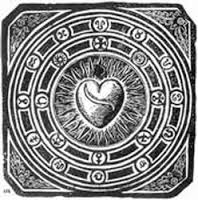Paulo Apóstolo – Apollos (opositor)
Simone Pétrement – A Separate God
III. The first indications of a tendency toward Gnostic ideas are found among the Corinthian Christians to whom two of Paul’s epistles are addressed. In the second of these epistles, as far as we can tell, Paul’s opponents are the same as in the first. It seems that it is principally a matter of the followers of Apollos. But these opponents, though opposing Paul’s teaching, manifest a tendency that to a certain extent seems to be parallel to that of Paul. It simply goes a little further.
IV. The second stage, and by far the most important in the evolution toward Gnosticism, is constituted by the Fourth Gospel. It is not that this Gospel is properly speaking Gnostic; but often the mode of expression is such that one can deduce the principles of Gnosticism from it. In it, an anticosmic attitude is in general very strong, and the criticism of Judaism here is often very violent. In a certain way, the Fourth Gospel agrees with Paul’s theology, but its language differs greatly from Pauline language and is often close to Gnosticism. This is why some exegetes of our time say that this Gospel is already Gnostic or semi-Gnostic, while others contest this, each with good reasons.
V. Excursus: These first two movements toward Gnosticism, that of the Corinthians and that of the Johannine author, might not be unconnected. For the same man might be responsible both for the “Gnostic” tendencies of the Corinthians and the “Gnostic” language of the Fourth Evangelist. This Evangelist—definitely a man of genius—might in fact be the strange and remarkable person whom the Corinthians put on the same level as Peter and Paul: Apollos. A good number of reasons incline us toward this hypothesis, which has already been suggested but without taking into account everything that might support it. If Apollos is not the author of the Fourth Gospel, he might at least have been the main inspiration of the circle from which this Gospel emerged (cf. B. W. Bacon).
(This hypothesis is but a digression. It is not necessary for one to note the links between the tendencies of the Corinthians and the language of the Fourth Evangelist, nor to give one the right to look to Jewish Alexandrian Platonism—Apollos was from Alexandria—for the possible source of the type of expression the author we call John uses.)
